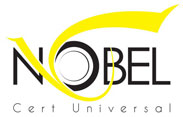BS ISO 37101 is the first international standard on sustainable development in communities and cities. Among a range of sources, it draws on some content in BS 8904:2011 Guidance for community sustainable development. But whereas that standard is best suited to local, grass-roots organizations, this international standard has been developed to help city leaders create a vision for the future of their cities, implementing steps to achieve sustainable development goals.
ISO 37101:2016 is intended to help communities become more resilient, smart and sustainable, through the implementation of strategies, programmes, projects, plans and services, and demonstrate and communicate their achievements.
ISO 37101:2016 is intended to be implemented by an organization designated by a community to establish the organizational framework and to provide the resources necessary to support the management of environmental, economic and social performance outcomes. A community that chooses to establish the organizational framework by itself is considered to constitute an organization as defined in ISO 37101:2016.
ISO 37101:2016 is applicable to communities of all sizes, structures and types, in developed or developing countries, at local, regional or national levels, and in defined urban or rural areas, at their respective level of responsibility.
Who is the standard for? This standard is targeted at:
- City CEOs
- Sustainability officers
- Smart city managers
- Compliance managers
- Policy advisors, NGOs and consultants who are planning their city’s long term sustainability agenda
What does the standard cover?
BS ISO 37101 has been developed to help city leaders set and achieve their city’s sustainable development agenda.It sets out requirements and guidance to help create a sustainable future for communities with the support of methods and tools including smartness and resilience. It can help communities improve in a number of areas such as:
- Developing holistic and integrated approaches instead of working in silos (which can hinder sustainability)
- Fostering social and environmental changes
- Improving health and wellbeing
- Enabling engagement by the community with external organizations to drive positive change
- Encouraging responsible resource use
- Achieving better governance

